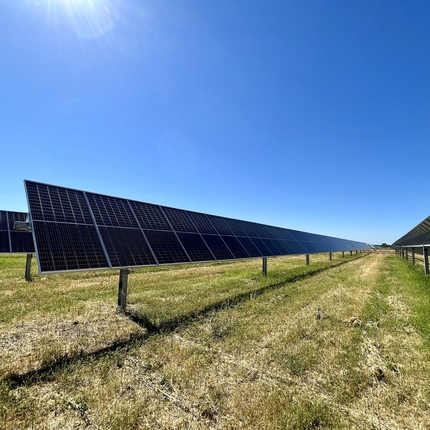The Minnesota Legislature further confirmed the state's commitment to addressing climate issues with the passage of two climate and energy-related bills.
The first—House File (HF) 7— will accelerate the state’s clean energy transition by requiring that state utilities produce all of their electricity from carbon-free sources by 2040. The bill also allows for more efficient permitting for new renewable projects to connect to the power grid.
Later in the session, the Legislature passed, and Gov. Tim Walz signed HF 2310. The bill authorized more than $1.6 billion in environmental and natural resource spending and provided significant investments in distributed solar and residential electrification.
One of the most impactful energy measures in HF 2310 involves strengthening smaller and more disbursed solar generation facilities. As part of the legislation, $30 million in grants are available to install solar panels at schools and other public buildings.
More incentives were provided for public utility customers to install and connect solar systems as a result of a $12.5 million increase in funding for an existing Solar Energy Production Incentive program and an additional $8 million in specific investments.
Another pivotal item within HF 2310 is the expansion of the state’s community solar programs or community solar gardens. The bill increases the allowable project size from 1 to 5 megawatts and requires a majority of the subscriptions to be made up of low- to moderate-income households, affordable housing providers, and other public interests such as schools or tribal entities. The new law also eliminated language requiring community solar gardens to be located within or adjacent to the subscriber’s county, opening up more land for projects throughout the state.
The bill also includes a suite of new funding to accelerate residential and local electrification. This includes funding for electric vehicle rebates, electric school bus purchases, rebates to install electric heat pumps, and grants for electric panel upgrades adaptable for electric stoves and other appliances. The funding available for home electrification installments can be combined with federal investment.
Overall, HF 2310 stands to benefit rural communities by lowering costs for residential electrification and increasing the accessibility and development of community-scale solar projects. In tandem with the first climate bill, which focused on large-scale renewable energy projects, the latter will lead to an expansion of small-scale and disbursed renewables, which will increase grid reliability, and bring the state closer to meeting its carbon-free electricity goal.





